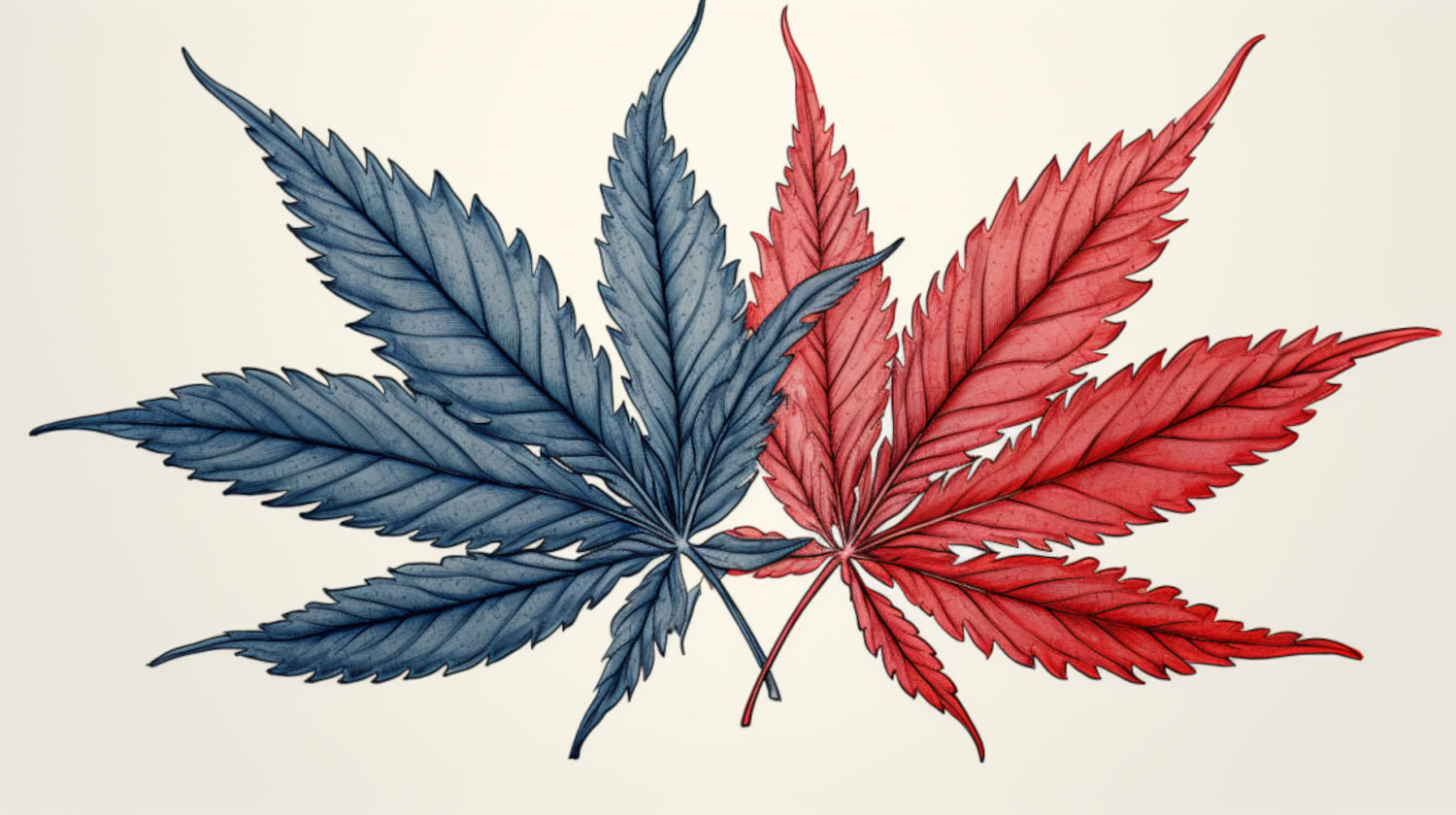Alternative cannabinoids have become more and more popular since the 2018 Farm Bill legalization. If you’ve been doing research into alternative cannabinoids, then you may have heard of CBCA (cannabichromenic acid). What is CBCA and why should you care about it?
CBCA naturally occurs in flower but is typically commercially synthesized when found as a primary component of products. CBCA is non-intoxicating, but due to a lack of current research, there are still many unanswered questions about this cannabinoid.
What Is CBCA?
CBCA is a phytocannabinoid, which means that it naturally occurs in the cannabis plant and interacts with the body’s natural endocannabinoid system. This means that the compound has the ability to elicit certain effects within the body.
CBCA is a compound that typically gets chemically turned into CBC. This cannabinoid is only present when the cannabis plant is nearing full maturity. CBCA is non-intoxicating, which makes it similar to a compound like CBD.
CBCA was identified and isolated decades ago, but much research hasn’t been done to understand how CBCA interacts with the body. This is important to keep in mind if you’re considering adding this compound to your health and wellness routine.
CBCA is naturally produced in cannabis flowers.1 However, it is found naturally in minimal amounts, so any commercial product you buy will contain semi-synthetic CBCA.
While it’s possible that this compound could have positive health benefits, CBCA isn’t widely used. This could be due to the lack of research or the lack of awareness that this compound even exists. If you’re unsure whether CBCA is the right choice, consider speaking with a medical professional about what makes the most sense for your situation.
Effects and Benefits of CBCA

The CBCA cannabinoid remains mostly unstudied, so it’s difficult to make evidence-based claims about the effects and benefits of this cannabinoid.
CBCA’s effects are very different from THC. THC is intoxicating and produces the effects that are commonly associated with cannabis, whereas CBCA will not get you high, and its effects may not even be noticeable, depending on an individual's metabolism, tolerance, and the dosage consumed.
One scientific use for CBCA is in fighting bacterial infections. Researchers have found that CBCA can be effective at fighting MRSA, a viral bacterial pathogen.2 This is an exciting find, but more research needs to be done before this cannabinoid can be used at a larger scale for antibacterial purposes.
Risks of CBCA
When it comes to consuming cannabichromenic acid, there hasn’t been much research to understand the risks. It may be best to stick to cannabinoids that have gone through testing. Informed decisions are important when it comes to cannabis and its byproducts, but it’s difficult to make informed decisions about CBCA.
While there is the possibility of health risks resulting from CBCA use, most cannabinoids are generally considered to be safe when taken in moderation. This is an important thing to keep in mind when you’re shopping for cannabis products.
CBCA vs. Other Popular Cannabinoids

CBCA remains a compound that has received little attention from the scientific community. Because of this, other cannabinoids are considered safer due to our better understanding of them.
Compared to THC and CBD, very little is known about CBCA. In addition to the study mentioned in the section above, significant research has been conducted into the potential of CBCA to be an effective agent against MRSA. This same research indicated that dela-9 THC, delta-8 THC, CBN, CBD, and CBG also were effective against MRSA.3 Other than its antibacterial properties, we cannot make claims about how CBCA may affect individuals compared to other cannabinoids.
CBCA Products
If you’re interested in buying a CBCA product, your work may be cut out for you. CBCA only exists in flower and extracts and converts to CBC when heated. In order to make a product with CBCA, it would need to be made from raw, dried, non-decarboxylated flower. CBCA is only naturally produced in small amounts, and the amount that’s naturally available wouldn’t be enough to elicit any effects.
While it may not be impossible to find CBCA products, it’s not easy. Consider doing some research online to see if a store near you might carry this specific cannabinoid.
When shopping for CBCA, it’s important to follow best cannabis practices. This means only shopping for products at reputable dispensaries or buying from brands with independent reviews and third-party lab testing. If you’re not sure whether or not you feel comfortable with a certain product or cannabinoid, then it might be time to look for another option.
References
- Walsh KB, McKinney AE, Holmes AE. Minor Cannabinoids: Biosynthesis, Molecular Pharmacology and Potential Therapeutic Uses. Frontiers in Pharmacology. 2021;12. doi:https://doi.org/10.3389/fphar.2021.777804 ↩︎
- Galletta M, Reekie TA, Nagalingam G, Bottomley AL, Harry EJ, Kassiou M, Triccas JA. Rapid Antibacterial Activity of Cannabichromenic Acid against Methicillin-Resistant Staphylococcus aureus. Antibiotics. 2020; 9(8):523. https://doi.org/10.3390/antibiotics9080523 ↩︎
- Klahn P. Cannabinoids-Promising Antimicrobial Drugs or Intoxicants with Benefits?. Antibiotics (Basel). 2020;9(6):297. Published 2020 Jun 2. doi:10.3390/antibiotics9060297 ↩︎
The information in this article and any included images or charts are for educational purposes only. This information is neither a substitute for, nor does it replace, professional legal advice or medical advice, diagnosis, or treatment. If you have any concerns or questions about laws, regulations, or your health, you should always consult with an attorney, physician or other licensed professional.




